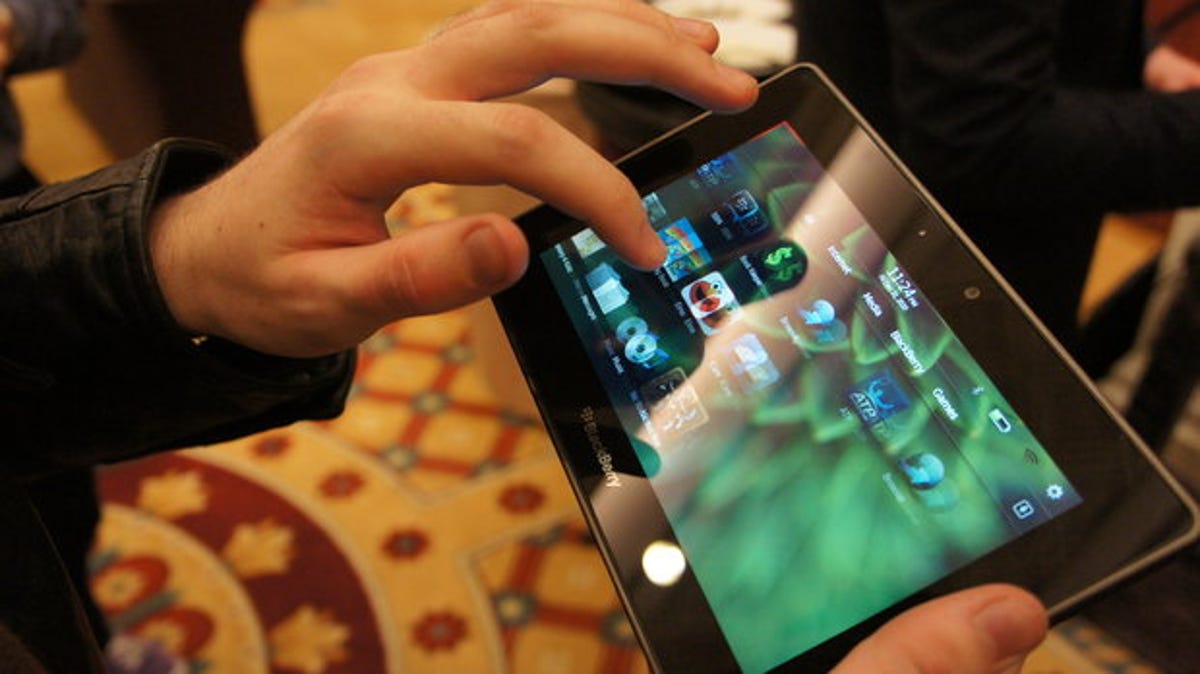
The BlackBerry PlayBook tablet is about to go on sale in the US, and the first wave of reviews have been published online, commending RIM’s new device for its strong hardware design and performance, but pinpointing software issues and a lack of apps as weaknesses.
We’ve been reading through the various tests, including those from the New York Times, Wired, TechCrunch, Boy Genius Report and — of course — our Yankee counterparts at CNET.com. So what are they saying?
Hardware
Wired‘s Mike Isaac gives the consensus view, calling the 7-inch PlayBook “a good-looking piece of hardware” with bags of “business chic”. The rubbery backing is praised by most reviewers for feeling rugged, although TechCrunch’s MG Siegler thinks it “does make the device feel slightly cheaper than the iPad — more plasticky”.
The NYT‘s David Pogue is more mixed in his views though, saying, “the PlayBook looks and feels great: hard rubberised back, brilliant, super-responsive multi-touch screen, solid heft”, but claiming it’s “about half an inch too wide” to be slipped into a jacket breast pocket.
Nobody is keen on the PlayBook’s power button though, which sits on the top edge of the device and is — in the words of CNET.com’s Donald Bell — “so small and recessed that you’ll need to whittle down your fingertip to use it”. Ouch. The HDMI-out feature and audio are warmly received, though.
Software
The QNX-based OS that powers the PlayBook has received a mixed reaction, even if, as Pogue points out, it clearly borrows some of its key UI elements from both webOS and iOS. TechCrunch reckons the OS is “well done”, with plenty of attention to detail and a logical navigation system. It also praises the way multi-tasking works on the PlayBook.
Boy Genius Report takes a different approach, however, suggesting that the software could be the PlayBook’s Achilles heel. “For all the advancements RIM has made in the OS department, the PlayBook’s software feels rushed in almost every way possible. From inconsistencies with the UI and design to random bugs and annoyances, the software on the PlayBook shows one of RIM’s biggest weaknesses: its lack of ability to execute.”
The PlayBook’s browser comes in for strong criticism too, while reviewers are none too keen on the lack of native email, contacts and calendar apps. The BlackBerry Bridge software that pairs the PlayBook with a BlackBerry smart phone is praised, though.
Apps
And apps? It looks as though RIM has missed a trick by only making a few PlayBook apps available at the time these reviewers were using the tablet — despite its claim that more than 3,000 have been submitted for approval.
CNET.com says the selection is “meagre”, Wired calls it “paltry”, and TechCrunch tears into the “complete and utter lack of native applications”. All refer to RIM’s 3,000 submissions claim, so the key now will be to see how many of those are approved and launched in time for the device’s on-sale date next week.
In conclusion? We’re sensing that if RIM co-CEO Mike Lazaridis doesn’t like questions about his company’s privacy policies, he may find more reasons to get the hump with the initial crop of reviews, with the sharpest criticisms coming down to that idea of execution. Or as Pogue witheringly puts it: “In its current half-baked form, it seems almost silly to try to assess it, let alone buy it.”




